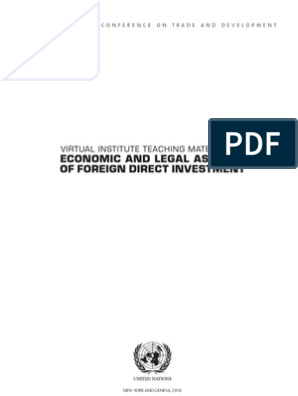0% found this document useful (0 votes)
7 views15 pagesIsrar Ahmad Research Proposal
This thesis analyzes Singapore's investment framework, highlighting its legal and policy mechanisms that have established it as a global hub for foreign direct investment (FDI). It draws actionable insights for Pakistan and other emerging markets, emphasizing the need for legal reforms, streamlined regulations, and targeted incentives to enhance their investment climates. The study aims to contribute to the discourse on FDI policy design, offering a roadmap for sustainable economic development through improved investment frameworks.
Uploaded by
ghaziibnekhalidCopyright
© © All Rights Reserved
We take content rights seriously. If you suspect this is your content, claim it here.
Available Formats
Download as DOCX, PDF, TXT or read online on Scribd
0% found this document useful (0 votes)
7 views15 pagesIsrar Ahmad Research Proposal
This thesis analyzes Singapore's investment framework, highlighting its legal and policy mechanisms that have established it as a global hub for foreign direct investment (FDI). It draws actionable insights for Pakistan and other emerging markets, emphasizing the need for legal reforms, streamlined regulations, and targeted incentives to enhance their investment climates. The study aims to contribute to the discourse on FDI policy design, offering a roadmap for sustainable economic development through improved investment frameworks.
Uploaded by
ghaziibnekhalidCopyright
© © All Rights Reserved
We take content rights seriously. If you suspect this is your content, claim it here.
Available Formats
Download as DOCX, PDF, TXT or read online on Scribd
/ 15






















































































